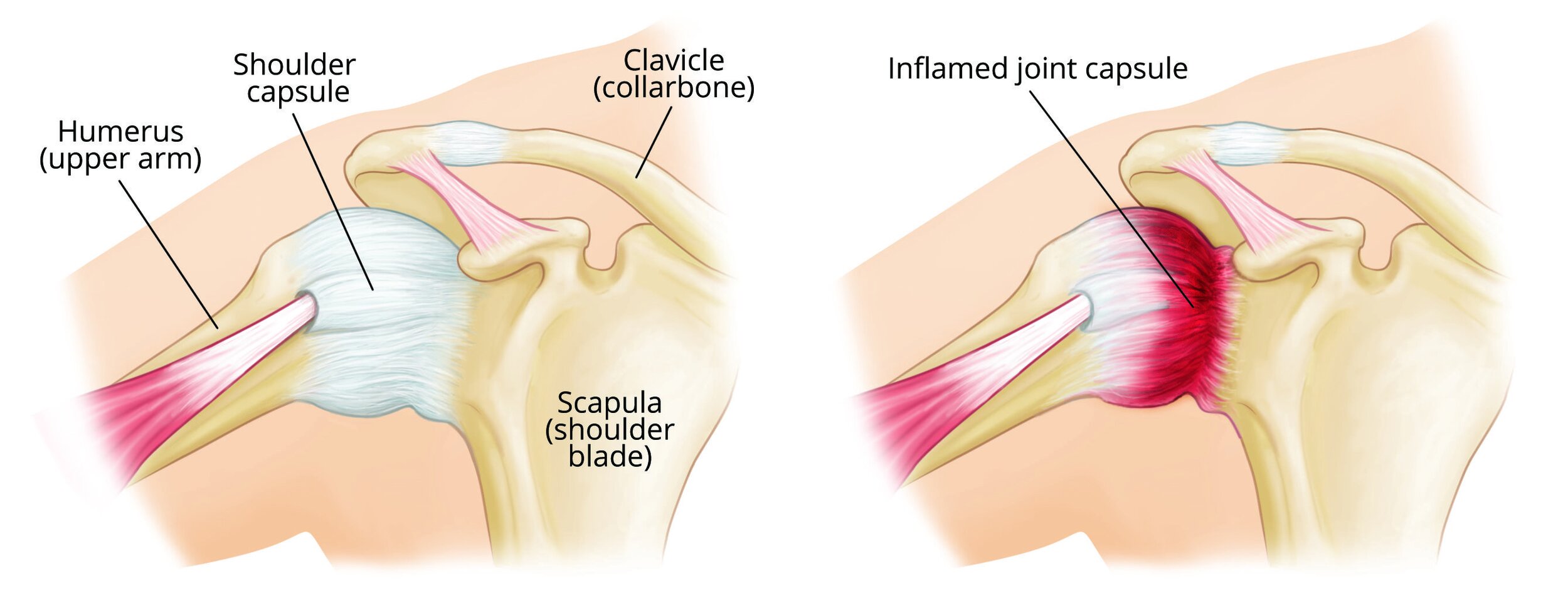FROZEN SHOULDER (ADHESIVE CAPSULITIS)
Frozen shoulder is when your shoulder becomes painful and loses motion because of inflammation. The capsule of the shoulder joint contains ligaments that hold the shoulder bones together. When this capsule becomes inflamed, the shoulder bones are unable to move freely in the joint, causing a decreased range of motion of the shoulder, pain, and stiffness. Goals of treatment are to relieve pain and reduce inflammation.
Frozen shoulder or adhesive capsulitis is when your shoulder becomes painful, inflamed and very stiff, affecting a range of motion and functionality of the shoulder. The shoulder joint is made up of three bones and surrounded by the shoulder capsule which is made of strong connective tissue. Frozen shoulder is characterized by a thickened shoulder capsule, usually from the development of adhesions or thick bands of tissue.
Frozen shoulder typically occurs in three stages: freezing stage, frozen stage and thawing stage. You are in the freezing stage when shoulder range of motion becomes limited and any movement of the shoulder causes pain. The frozen stage is characterized by diminished pain but the joint itself becomes stiffer, and utilization of the shoulder becomes harder. Lastly, range of motion starts to get better in the thawing stage.
Goals of treatment are pain relief and range of motion preservation. Medication can help with inflammation and pain and physical therapy can aid in range of motion recovery. Steroid injections into the shoulder joint also may relieve pain and improve mobility. Surgery is rare but if no other treatment works, scar tissue and adhesions can be removed.

